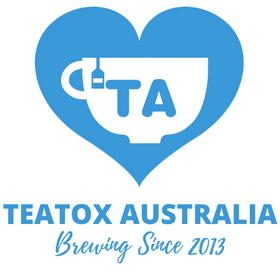
Going gluten-free has been the norm over the past few years as many celebs and internet influencers are swearing by the benefits of following a healthy, gluten-free diet as part of their overall healthy lifestyles. But what makes gluten so avoidable and why is it good to ditch it from your diet? Gluten is actually a class of protein compounds found in cereals like acts as a binding and caking agent. It is a major component of an elastic dough in pizzas and pies and is also used to thicken up sauces and liquids. However, beyond its usefulness in cooking, gluten as a molecular structure is incompatible with the digestive system of some people. This incompatibility can lead to all kinds of problems such as indigestion, fatigue, skin breakouts, pain and more.
While gluten intolerance doesn’t affect everyone, if you have noticed any of the following, you better get yourself checked officially by a doctor to confirm whether you are intolerant or not:
Stomach pain or bloating after gluten consumption. One of the most obvious signs, chronic stomach pain or bloating following consumption of gluten-loaded foods like pasta, bread and pies, is enough to tell you that something isn’t right with what you eat. If everytime you eat any of these foods you instantly encounter stomach issues, you most probably are gluten-intolerant. Additional symptoms include diarrhea or simply having the urge to go to the toilet after you eat the suspected food.
Skin issues. If despite your skincare efforts, you still suffer from major skin outbreaks like acne, pimples, or eczema and dry or flaky skin, perhaps something in your diet is to blame. A lot of acne guides suggest that you skip dairy and sugar but gluten can also be a diet factor that indirectly contributes to acne and other skin issues as well, as it prevents the absorption of skin-healing vitamins like A, K, and E in the gut.
Brain problems. Another sign that many attribute to millions of other things, when gluten may be lurking behind, are brain problems like anxiety, depression, inability to stay focused, brain fog, and mood imbalance. Of course, not all of these symptoms aren’t a sign of gluten intolerance of its own but combined with others, your mind and body are probably trying to alert you that you are gluten intolerant and must stop.
Hormonal imbalances. PCOS, which according to womenshealth.gov, affects 1 out of 10 women in childbearing age and female hormonal imbalances may also be a sign of gluten intolerance, along with candida and other nutritional blockers. If you also struggle to get pregnant and the doctor can’t find out why you may need to get tested for gluten intolerance as it prevents high fertility levels.
Muscle pains or fibromyalgia. Even though fibromyalgia is a complex disorder which is characterized by pains in the muscles and joints all over the body, in several cases, gluten intolerance can aggravate existing symptoms. If after eating gluten-rich foods you find that your pains seem to worsen, perhaps it’s time to get yourself checked
So what should you do in case of gluten intolerance?
After getting yourself officially tested by a doctor, the next step would be, of course, to follow a gluten-free diet. Ditch out the pasta, white bread, wheat and anything that contains gluten and make sure you are eating products that are clearly labeled as "gluten-free". Careful as besides ordinary food, some unsuspecting drinks or sauces may also contain gluten as a thickening agent. Opt for plain water and herbal detox teas instead that don’t contain any suspicious gluten or other ingredients.

